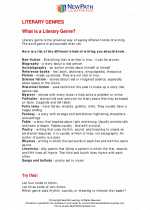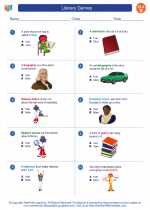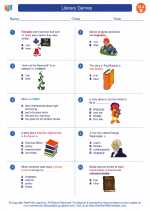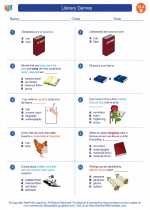Literary Genres Study Guide
What are Literary Genres?
Literary genres are categories that define the type of literary work. They are used to organize and classify different types of literature based on their content, form, and style.
Main Literary Genres
There are several main literary genres, including:
- Fiction: Stories that are created from the author's imagination, including novels, short stories, and novellas.
- Nonfiction: Texts that are based on real events, people, and facts, such as biographies, autobiographies, essays, and articles.
- Poetry: Literary works that use concise and rhythmic language to evoke emotional responses. Poetry can take many forms, such as sonnets, haikus, and free verse.
- Drama: Works that are meant to be performed, including plays and scripts for theatrical productions.
Subgenres
Each main literary genre has subgenres that further classify different types of literature. For example:
- Fiction Subgenres: Mystery, science fiction, romance, fantasy, historical fiction, and more.
- Nonfiction Subgenres: Memoirs, self-help books, travel writing, and academic texts.
- Poetry Subgenres: Epic poetry, lyrical poetry, narrative poetry, and experimental poetry.
- Drama Subgenres: Tragedy, comedy, melodrama, and farce.
Importance of Understanding Literary Genres
Understanding literary genres helps readers and writers communicate effectively about different types of literature. It also allows for better analysis and critique of literary works, as each genre has its own conventions and expectations.
Study Tips
When studying literary genres, consider the following tips:
- Read widely across different genres to familiarize yourself with their characteristics.
- Take note of the unique elements and themes present in each genre.
- Discuss and compare different genres with classmates or study groups to gain diverse perspectives.
- Practice writing in different genres to develop your skills as a writer.
Conclusion
By understanding and appreciating literary genres, you can enhance your reading experience and gain a deeper insight into the diverse world of literature.
[Literary Genres] Related Worksheets and Study Guides:
.◂English Language Arts Worksheets and Study Guides Second Grade. Literary Genres

 Worksheet/Answer key
Worksheet/Answer key
 Worksheet/Answer key
Worksheet/Answer key
 Worksheet/Answer key
Worksheet/Answer key
